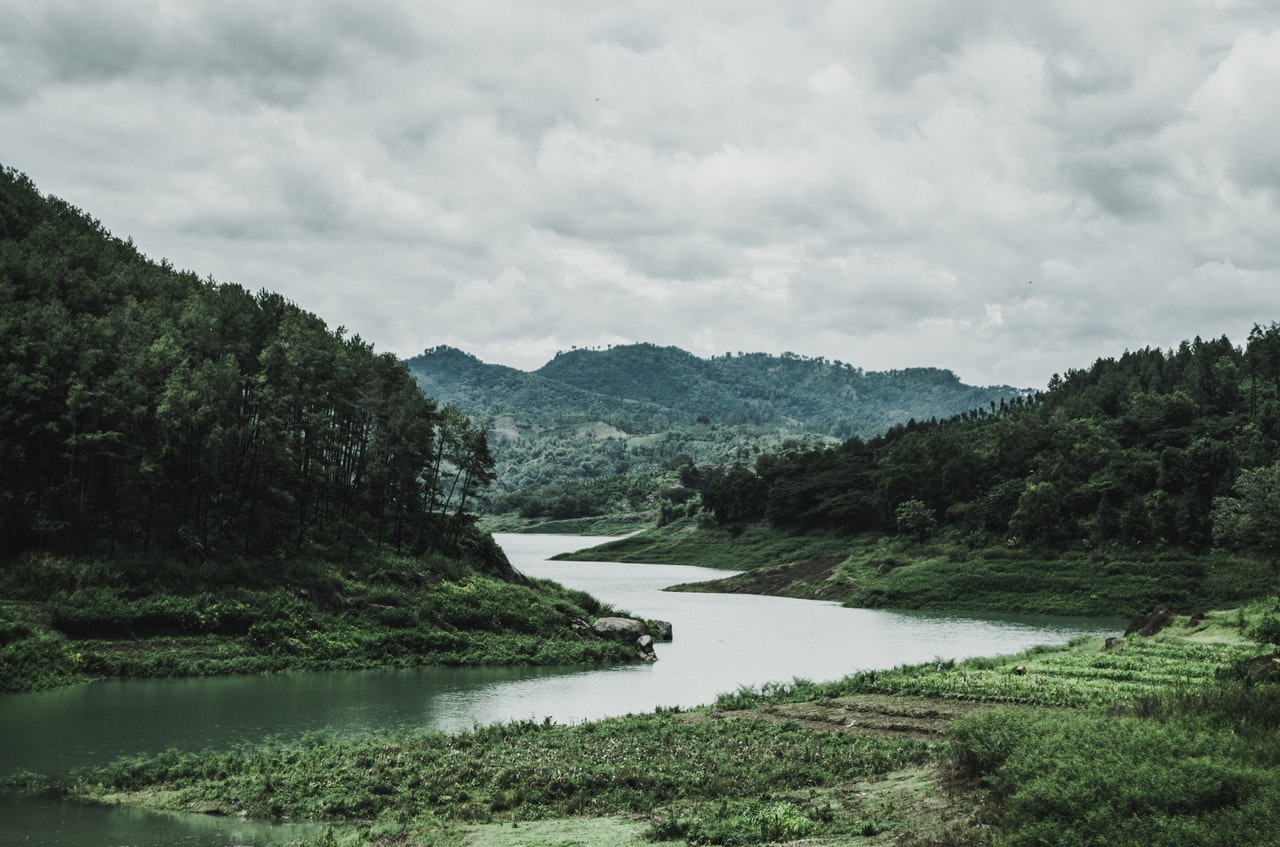Introduction to Solo Travel

Solo travel presents a unique chance to discover the world on your own terms, free from the compromises that often come with group travel. It allows you to indulge in your interests, whether it’s exploring historical sites, enjoying nature, or diving into local cuisine. Traveling alone encourages personal growth and builds self-confidence, as you navigate new environments and make decisions independently. It’s a fantastic way to truly connect with the places you visit, as you’re more likely to engage with locals and fellow travelers when you’re on your own.
For many, the idea of solo travel is both exhilarating and intimidating. The thought of navigating foreign lands, managing logistics, and ensuring safety can be overwhelming. However, with the right preparation and mindset, these challenges become manageable and can even add to the adventure.
One of the key aspects of solo travel is flexibility. Without the need to coordinate with others, you have the freedom to change plans on a whim, linger longer in a place you love, or move on quickly if something doesn’t appeal to you. This spontaneity often leads to unexpected discoveries and memorable experiences that wouldn’t happen on a more rigid itinerary.
Another benefit is the opportunity for self-discovery. Traveling alone gives you the space to reflect, gain new perspectives, and perhaps even challenge your own beliefs and assumptions. The experience can be both enlightening and empowering, offering insights that extend beyond the trip itself.
Of course, solo travel also means taking on all the responsibilities of planning and navigating on your own. This requires a certain level of organization and foresight. It’s important to research destinations thoroughly, plan your routes, and stay aware of safety guidelines. While this might seem daunting at first, it becomes second nature with experience and offers a sense of accomplishment.
Solo travel can be a deeply rewarding experience, providing both the thrill of adventure and the comfort of independence. With thoughtful planning and an open mind, it offers a unique opportunity to explore the world and discover yourself.
Planning Your First Solo Adventure
Choosing your first solo travel destination is essential to ensure an enjoyable and safe experience. Start by looking for places renowned for being solo traveler-friendly, such as cities with efficient public transport, a low crime rate, and a vibrant cultural scene. Think about what excites you—be it the hustle and bustle of a big city, the calm of a beach, or the charm of a small town.

After selecting your destination, dive into research. Look up must-see attractions, local events, and unique experiences. Create a list but also leave room for unexpected adventures that may come your way. Having a well-thought-out plan can help ease anxiety and allow you to maximize your time.
Accommodation is another key aspect to consider. Opt for places with positive reviews from other solo travelers. Hostels, guesthouses, and even some hotels can offer opportunities to meet fellow travelers, making your journey more social and enjoyable. Booking your stay in advance not only ensures you have a place to rest but also provides peace of mind.
When it comes to activities, mix structured plans with spontaneity. Book tickets for popular attractions ahead of time to avoid long lines, but also set aside time for wandering and exploring at your own pace. Guided tours can be a fantastic way to learn about your destination while meeting new people.
Food is an integral part of travel, and eating alone can be both a challenge and a delight. Research local cuisine and find popular spots that cater to solo diners. Don’t shy away from trying street food or small, family-run eateries; they often offer the most authentic culinary experiences.
Lastly, consider the practicalities. Familiarize yourself with local customs, currency, and basic phrases in the local language. Knowing a few key expressions can go a long way in making your journey smoother. Download maps and useful travel apps in advance, and ensure you have all necessary documents, such as visas and travel insurance, sorted out before you go.
Staying Safe on Your Solo Journey
Being vigilant about your surroundings is crucial. Trust your instincts; if something feels off, it probably is. Keep duplicates of important documents like your passport and identification in a secure place, separate from the originals. Sharing your itinerary with family or friends can add a layer of security. Check in with them regularly, updating them on your whereabouts and plans.
Technology can serve as a valuable tool for solo travelers. Utilize apps for navigation, translation, and emergency services. Make sure to connect only to trusted Wi-Fi networks, and consider using a VPN to enhance your online security. Keep your devices charged and carry a portable charger to ensure you’re never caught off guard.
Avoid displaying valuables openly and keep a close eye on your belongings. Using a money belt or hidden pouch can help protect your cash and important items. Be mindful of local customs and dress codes to avoid drawing unwanted attention.
Stay in well-reviewed accommodations, preferably with security features such as lockers or safes. Always lock your door and keep windows secure. When exploring new places, stick to well-lit, populated areas, especially at night. If you need to ask for directions, seek help from officials or staff at reputable establishments.
It’s also wise to have a plan in case of emergencies. Know the local emergency numbers and the location of the nearest embassy or consulate. Having travel insurance can provide peace of mind, covering unexpected medical expenses or trip disruptions.
Packing Essentials for Solo Travelers
When packing for a solo trip, think strategically to ensure you have everything you need without overburdening yourself. Begin with a reliable backpack or suitcase that suits the nature of your journey. For clothing, select versatile items that can be mixed and matched easily, and be mindful of the climate at your destination. Lightweight, quick-dry fabrics are often a good choice.
Comfortable walking shoes are a must, as you’ll likely spend a lot of time exploring on foot. Pack travel-sized toiletries to save space, but remember that you can always buy more at your destination if needed. A basic first-aid kit with band-aids, pain relievers, and any prescription medications is essential for handling minor health issues on the go.
Bring a portable charger to keep your devices powered throughout the day, especially if you’re using them for navigation or translation. A universal power adapter is also crucial for international travel, ensuring you can plug in wherever you go. Having a lightweight, reusable water bottle can keep you hydrated and reduce plastic waste.
Don’t forget items that will enhance your travel experience. A good book or a journal can provide entertainment and a way to document your adventures. A compact umbrella or a rain jacket can be a lifesaver in unpredictable weather.
Safety is a priority, so consider packing a money belt or hidden pouch for your valuables. Keep copies of important documents like your passport and travel insurance in a separate, secure location.
Finally, think about any unique needs you may have based on your destination. For instance, if you’re heading to a sunny locale, sunscreen and a hat are essential. If you’re visiting a region known for bugs, insect repellent will be invaluable. With thoughtful preparation, you can ensure a smooth and enjoyable solo travel experience.
Meeting People and Making Connections
Traveling solo provides ample opportunities to connect with others, whether fellow travelers or locals. Hostels are fantastic places to meet like-minded individuals; many offer communal spaces where guests can socialize. Joining group tours or classes is another great way to bond over shared interests. Cooking classes, walking tours, or adventure activities often bring people together naturally.
Don’t overlook social media and travel apps. Platforms like Meetup, Couchsurfing, and even Facebook groups can be invaluable for finding events and gatherings. Participating in local festivals or community events can also offer unique ways to engage with the culture and its people.
Visiting cafes, bars, and restaurants with communal tables can encourage conversation. Sometimes, simply sitting at the bar instead of a private table can open the door to new friendships. Strike up conversations by asking for recommendations on local spots or dishes.
Volunteering during your travels can provide deep, meaningful connections and a unique perspective on the destination. Many organizations welcome short-term volunteers, offering a chance to meet people while giving back to the community.
Learning a few phrases in the local language can break the ice and show respect for the culture. Even a simple greeting can go a long way in initiating a conversation and creating a bond.
Remember, being approachable helps. A smile and open body language can make you seem more inviting. Trust your instincts when interacting with strangers and always prioritize your safety.
By putting yourself out there and taking advantage of these opportunities, you’ll find that solo travel can be far from lonely.
Managing Finances While Traveling Alone

Managing your finances effectively is crucial for a smooth solo travel experience. Start by setting a realistic budget that covers all aspects of your trip, including accommodation, meals, transportation, and activities. Track your spending to ensure you stay within your limits. Utilize budgeting apps to keep a detailed account of your expenses in real-time.
Opt for a travel-friendly credit card that offers benefits such as no foreign transaction fees and rewards for travel-related purchases. This can help you save money and earn perks while on the road. Additionally, keep a small amount of local currency handy for situations where card payments aren’t accepted.
Withdraw cash from ATMs in larger amounts to minimize transaction fees but avoid carrying too much cash at once. Store extra cash and a backup credit card separately from your primary wallet to safeguard against loss or theft. Consider using a money belt or hidden pouch for added security.
Be cautious with currency exchange services, as they often have unfavorable rates and high fees. Research the best places to exchange money, such as banks or official currency exchange offices, to get the most value.
For accommodations, look for deals and discounts through travel websites and apps. Booking in advance can often secure lower rates. Consider staying in budget-friendly options like hostels or guesthouses, which can also provide opportunities to meet other travelers.
Meal costs can add up quickly, so explore local markets and grocery stores for affordable dining options. Preparing some of your own meals can help reduce expenses. However, don’t miss out on trying local cuisine at popular spots recommended by locals or fellow travelers.
Lastly, always have a backup plan for accessing funds in case of emergencies. Keep emergency contacts and financial institution details handy, so you can quickly address any financial issues that arise.
Dealing with Loneliness on the Road
Feeling lonely while traveling solo is natural and something most solo travelers experience at some point. Instead of viewing loneliness as a negative, try to embrace it as a chance to gain deeper insights into yourself and the world around you. Engage in activities that you enjoy and immerse yourself in the local culture. Whether it’s reading a book in a quaint café or journaling your thoughts in a beautiful park, find joy in the moments of solitude.
Staying connected with loved ones can also help alleviate feelings of loneliness. Regularly check in with friends and family through video calls or messaging apps to share your adventures and stay grounded. Additionally, use social media to document your journey and interact with others who are traveling solo. These connections, albeit virtual, can offer support and camaraderie.
Take advantage of opportunities to meet new people. Stay in social accommodations like hostels or guesthouses, where it’s easier to strike up conversations with fellow travelers. Participate in group tours, classes, or local events to meet like-minded individuals. Engaging with others can create a sense of community, even if it’s temporary.
Volunteering or attending local community events can provide meaningful interactions and help you feel more integrated into the place you’re visiting. Learning a few phrases in the local language can also open doors to new friendships and experiences.
Finally, practice self-care and be gentle with yourself. It’s okay to feel lonely sometimes, and acknowledging these feelings is part of the journey. By combining social interactions with moments of solitude, you can create a fulfilling and balanced solo travel experience.



